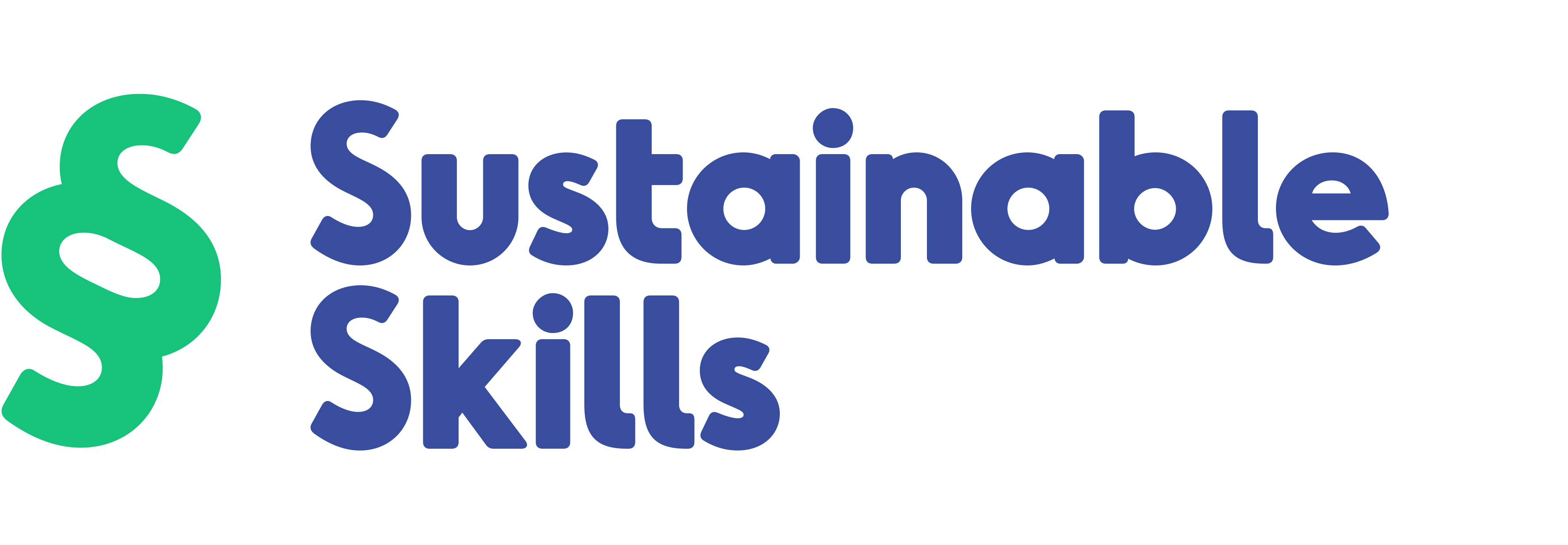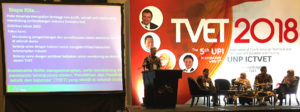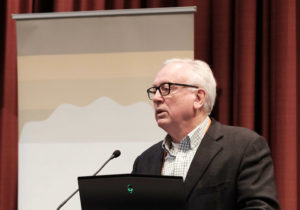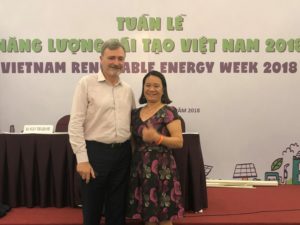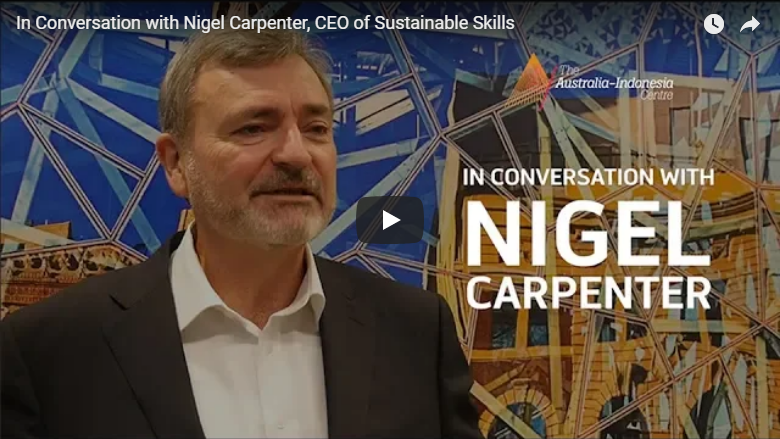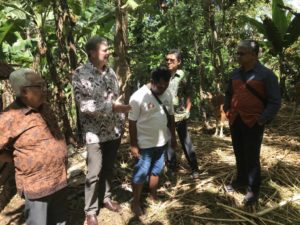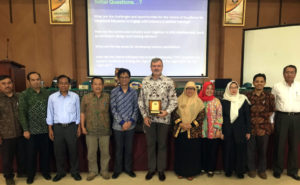
General elections were held in Indonesia on 17 April with over 190 million eligible voters. After quick count results, current President Joko Widodo appeared set to win a second term over his challenger, former general Prabowo Subianto. Official results should be notified next month but that might be delayed in the likely case that Mr. Prabowo decides to lodge an appeal to the Constitutional Court.
Mr. Widodo has placed the reform of education and training as a priority of his campaign to improve the quality and competitiveness of his country’s human resources. Over the past five years, the Widodo Government has focused on an ambitious plan to expand energy supply, transport and shipping and logistics and to rapidly increase the supply of international standard tourism resources. The program requires millions of skilled people that are not currently available in Indonesia.
Over the last two years, Sustainable Skills has developed a strong position in Indonesia. Our organisation has worked closely with several Indonesian ministries including the Ministry of Research Technology and Higher Education, Ministry of Manpower, Ministry of Education and Culture and the Coordinating Ministry of Economic Affairs to help develop TVET reform plans.
As part of the national TVET reform, Indonesia is establishing a new national TVET Centre of Excellence to address the fundamental mismatch between training outcomes and industry needs. Our organisation is helping the Indonesian Government to explore how the Centre can influence the broader national TVET system and develop the skills needed to support students in finding the ‘right training’ at the ‘right time’ for the ‘right job’.
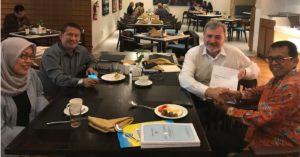
The Centre will be established at Universitas Pendidikan Indonesia (UPI) based at Bandung and Universitas Negeri Padang (UNP). This month, I met with UNP Rektor and team in Jakarta and we reached an important milestone in this process as the Rektor accepted Sustainable Skills proposal to support the establishment of the TVET Centre of Excellence. UNP has integrated our proposal into their submission to Bappenas and the Ministry of Research Technology and Higher Education.
During my trip to Indonesia this month, I visited the Ministry of Manpower’s training centre BBPLK Serang to learn how the country is delivering renewable energy training. Australia could play an important role by supporting Indonesia in the development and execution of a training strategy to effectively build local skills in the renewable energy sector.
I also have the pleasure of moderating a session on education at the Island Tourism Forum, being held in Mataram Lombok on the 29-30 April and organised by the Australian Consulate Bali. In a bid to strengthen the tourist industry in Lombok, the forum aims to bring together government, academics, businesses, NGOs and communities to share experiences, encourage partnerships and explore investment and commercial possibilities related to the province.
Sustainable Skills has nearly twenty years’ experience shaping and maintaining effective TVET systems and frameworks in Australia and around the world. Our TVET experts have helped a number of countries to improve their TVET system. I am pleased to share a table of all the projects we have managed over the past years and we are confident that new opportunities will become available soon.
| Project | Country | Description | Value (USD) | Duration |
|---|---|---|---|---|
| Workshop on TVET Systems, Competency Based Training, Governance, Monitoring and Evaluation | Kenya | Sustainable Skills was engaged by the Australian High Commission in Nairobi to prepare and deliver a workshop for 20 Kenyans, drawn from various roles in TVET in Kenya. | 15,000 | June 2019 |
| School Leaders Learning and Development Program | Fiji | Design a scalable model able to develop the skills and abilities of current and future school heads to provide excellent leadership and management for all schools | 295,000 | November 2018 - August 2019 |
| Due Diligence and Technical Evaluations | Uganda | Design a model of due diligence and capacity assessment to address prevailing skills imbalances and shortages in Uganda | 297,000 | July 2017 - July 2019 |
| Vocational Education and Training Qualifications Benchmarking and Development Project | Vietnam, Philippines | Capacity building of counterpart public sector organisations (PSO) to develop vocational education and training programs linked to industry needs | 140,000 | 2015-2016 (18 months) |
| Twinning Activity with TVETA - Construction Sector | Zambia | Build TEVETA’s capacity to develop industry-led occupational standards and assessment toolkits | 600,000 | 2014-2016 (18 months) |
| Twinning Activity with PIREP (Vocational Education reform program) - Construction sector | Mozambique | Build PIREP’s capacity to develop industry-led occupational standards | 250,000 | 2015-2016 (12 months) |
| Design of a Pan-Africa Skills Council | African Union | Design options for a pan-African skills council including a potential skills development fund | 30,000 | 2014 (2 months) |
| Southern African Regional Capacity Building Workshops | Mozambique, Tanzania, Zambia | Facilitation of a series of workshops focused on TVET systems, and promoting collaboration between African governments on TVET policies | 35,000 | 2016 |
| African Government Study Tour to Australia | 20 African Countries | TVET Advisory services for three skills development study tours to Australia | Total value 2,000,000 | 2013-2014 |
| Vocational Training Program - Construction sector | Uganda, Ghana, Kenya, Tanzania, Namibia, South Africa, Zambia | Set baseline for evaluation of a vocational training program in line with industry needs | 40,000 | 2013 (6 months) |
| Human Resources Mapping | East Timor | Support the East Timor Human Capital Development Fund in identifying skills limitations and make reccomendations for a workforce planning framework | 70,000 | 2015-2016 (9 months) |
| Training Package - Resources and Infrastructure Sectors | Australia | Development and continuous improvement of the occupational standards in consultation with industry | 2,250,000 per annum | 2012-2016 |
| National Workforce Development Fund | Australia | Management of an industry-government training fund. Assistance to companies in identifying appropriate training outcomes for funding | Fund value: 55,000,000 | 2011-2014 (3 years) |
| Regional Integrated Training Project Agriculture and Mining sectors | Australia | School-based training program to enable pathways into productive economic sectors in rural communities | 150,000 | |
| Cross-Industry training program - Agriculture, Construction, Fisheries, Mining | Australia | Training program to build sustainable workforces that could work across industries in line with seasonal and economic fluctuations | 1,300,000 | 2012-2015 (3 years) |
